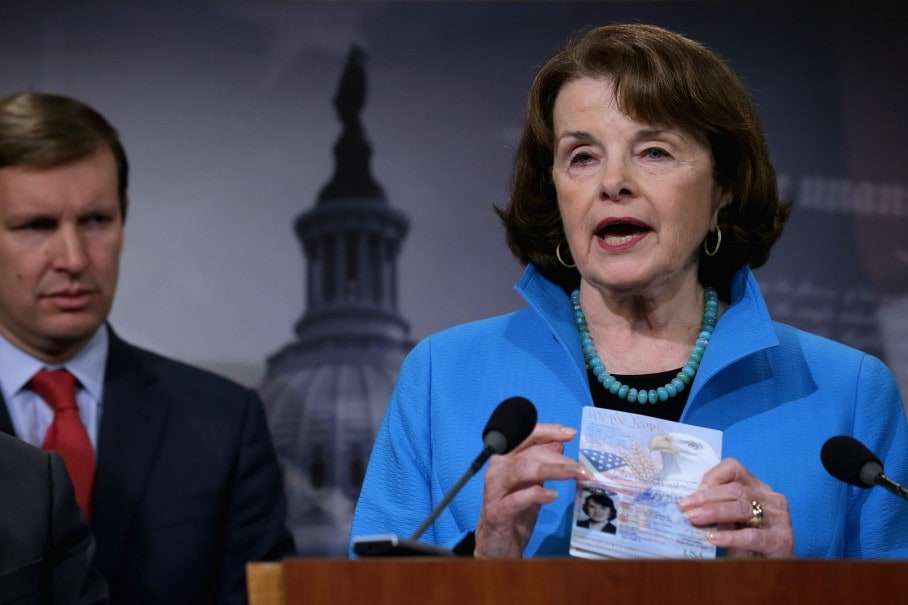The Volokh Conspiracy
Mostly law professors | Sometimes contrarian | Often libertarian | Always independent
Can Americans be denied Second Amendment rights because the Attorney General suspects they're terrorists?

The Post (Kelsey Snell and Karoun Demirjian) reports:
The Senate rejected [today] … an amendment from Sen. Dianne Feinstein (D-Calif.) to prevent individuals on the terror watch list from purchasing firearms on a 45 to 54 vote. The amendments were offered to an Obamacare repeal package currently being debated in the Senate and they needed 60 votes to be adopted.
Feinstein's amendment was identical to legislation she previously filed on the same topic ….
President Obama has also called for such a measure, by analogy to the federal "no-fly" list that bars certain people from getting on airplanes.
But can a person be denied constitutional rights, not based on a past criminal conviction or even a restraining order issued in court under a "preponderance of the evidence" standard, but based just on the government's suspicion? The Feinstein proposal would have provided that the government could bar gun sales to a person if two conditions were met:
- "the Attorney General" "determines that the [buyer] is known (or appropriately suspected)" to have been involved in terrorism-related conduct "or providing material support or resources for terrorism," and
- if the Attorney General "has a reasonable belief that the [buyer] may use a firearm in connection with terrorism."
That's a very low bar - denial of a constitutional right based on suspicion (albeit "appropriate[]") about a person's connections, and belief (albeit "reasonable" belief) about a person's possible future actions. Indeed, most of the time this would come into play only as to people for whom the government doesn't have proof of terrorist activity. If the government had proof, presumably the people would be prosecuted. (If the government has proof but isn't prosecuting because it hopes that quietly watching them would help catch more or bigger fish, then barring gun purchases would be a bad idea, since that would alert the person to the government's plans.)
I can't see how that's constitutional. And though the bill would have let the buyer go to court to challenge the attorney general's decision, the attorney general would simply have had to show by a preponderance of the evidence that the two elements were satisfied - that the attorney general appropriately suspected the buyer and that she had a reasonable belief about what the buyer may do. Plus the evidence supporting the attorney general's position might never be shared with the buyer, which may make it impossible for the buyer to fairly challenge it, or aired in open court.
The "no-fly" list itself can be criticized on these grounds; see this article at Reason (Scott Shackford) or the ACLU's critique. Courts have been hearing challenges to that list.
But the problem would be even more serious when we're dealing with the denial of an explicitly guaranteed constitutional right, and not just the denial of the admittedly very important ability to fly on airplanes. If you have a constitutional right to do something, the government has to do more than just provide the attorney general's suspicion and speculation as a basis for denying you that right. This isn't a supposedly modest, limited gun control measure. It cuts to the heart of the constitutional right itself.
(Of course, if you think the Second Amendment doesn't actually secure an individual right, then you might not worry about that. But Obama does believe that the Second Amendment secures an individual right, and I imagine that many of the senators who voted for the Feinstein proposal have said so, too; see, e.g., here. If they don't believe it secures an individual right, it would be good to know their position on the subject.)
I somehow doubt that would-be terrorists would be much stymied by being disqualified from legally buying guns. But in any event, it seems to me that any such disqualification should come only after showing that the person has done something bad, not that he's suspected of doing something bad and of intending to do something bad.


Show Comments (0)